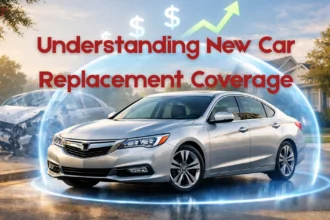Selecting the right equipment leasing provider is a crucial decision for any business looking to acquire necessary tools and machinery without the burden of hefty upfront costs. Equipment leasing offers flexibility and financial advantages, but it’s essential to choose a leasing partner that aligns with your business needs and goals. This comprehensive guide will walk you through the process of how to choose the right equipment leasing provider, covering everything from understanding different types of lessors to evaluating lease terms and negotiating favorable agreements.
Understanding Equipment Leasing

Before diving into how to choose a leasing provider, it’s important to understand what equipment leasing entails. Equipment leasing is a financial arrangement where a business rents equipment from a leasing company instead of purchasing it outright. This allows companies to access necessary equipment without the large capital investment typically required for purchases.
Leasing offers several potential benefits:
- Lower upfront costs
- Predictable monthly expenses
- Potential tax advantages
- Ability to upgrade equipment more easily
- Conservation of working capital
However, leasing also comes with some drawbacks, such as potentially higher long-term costs and lack of ownership. Understanding these pros and cons is crucial when deciding whether leasing is right for your business and which leasing provider to choose.
READ ALSO: Florida Equipment Leasing: A Comprehensive Guide for Agricultural Businesses
Types of Equipment Leasing Providers
When searching for an equipment leasing provider, you’ll encounter three main types:
- Lease Brokers Lease brokers act as intermediaries between your business and potential lessors. They handle much of the paperwork and present you with various leasing offers. While brokers can provide access to a wide range of options, their services often come with additional fees.
- Independent Lessors This category includes banks, lease specialists, and diversified financial companies that provide equipment leases directly to businesses. Independent lessors often specialize in equipment remarketing, allowing them to offer competitive rates by grouping products from multiple manufacturers.
- Leasing Companies Also known as captive lessors, these are often subsidiaries of manufacturers or dealers. They primarily facilitate leases with their parent company or dealer network.
Each type of provider has its strengths and weaknesses, so consider your specific needs when evaluating which might be the best fit for your business.
Key Factors to Consider When Choosing a Leasing Provider
Industry Experience and Expertise: Look for a leasing provider with experience in your specific industry. They should understand the unique challenges and requirements of your business sector. This expertise can lead to more favorable terms and better support throughout the leasing process.
Range of Equipment Options: Consider the variety of equipment the leasing company offers. Some providers specialize in specific types of equipment, while others offer a broad range of options. A lessor with a diverse equipment portfolio can be advantageous if your business needs various types of machinery or may need to upgrade in the future.
Lease Terms and Flexibility: Evaluate the flexibility of the leasing terms offered. Look for providers that offer customizable options such as:
- Flexible lease durations
- Payment schedules that align with your cash flow
- Options to upgrade or add equipment mid-lease
- End-of-lease options (purchase, renewal, or return)
Pricing and Transparency: Compare the pricing structures of different leasing providers. Be wary of hidden fees or charges that could increase your overall costs. A reputable lessor should be transparent about all costs associated with the lease, including:
- Monthly payments
- Interest rates
- Any upfront costs or down payments
- Maintenance and insurance requirements
- End-of-lease fees or purchase options
Customer Service and Support: Quality customer service is crucial throughout the leasing process. Look for a provider that offers:
- Prompt responses to inquiries
- Clear communication
- Ongoing support for maintenance and repairs
- Assistance with end-of-lease transitions
Financial Stability: Choose a leasing provider with a strong financial foundation. A stable lessor is more likely to offer consistent service and honor long-term agreements. Research the company’s financial history and look for any red flags such as pending litigation or a history of customer complaints.
Approval Process and Requirements: Understand the lessor’s approval process and requirements. Some providers offer streamlined applications for smaller leases, while others may require more extensive documentation. Consider how the approval process aligns with your timeline and ability to provide necessary information.
Technology and Reporting Tools: In today’s digital age, look for leasing providers that offer modern technology solutions. This might include online account management, digital document signing, and detailed reporting tools to help you track your leased equipment and payments.
READ ALSO: Top 10 Equipment Leasing Companies for Construction in California
Steps to Choosing the Right Equipment Leasing Provider
Assess Your Equipment Needs: Before approaching leasing providers, clearly define your equipment needs. Consider factors such as:
- Type and quantity of equipment required
- Expected usage and duration of need
- Potential for future upgrades or expansions
Research Potential Providers: Use online resources, industry associations, and business networks to identify potential leasing providers. Create a list of companies that seem to align with your needs.
Request Quotes and Information: Reach out to several leasing providers for quotes and detailed information about their services. Be prepared to provide basic information about your business and equipment needs.
Compare Offers: Carefully compare the offers you receive, looking beyond just the monthly payment. Consider factors such as:
- Total cost of the lease
- Flexibility of terms
- Quality of customer service
- Reputation of the leasing provider
Check References and Reviews: Ask for references from current or past clients, particularly those in similar industries. Additionally, look for online reviews and ratings to get a broader perspective on the leasing provider’s reputation.
Negotiate Terms: Once you’ve identified a preferred provider, don’t be afraid to negotiate. Many aspects of a lease agreement can be customized to better suit your needs.
Review the Lease Agreement Carefully: Before signing, thoroughly review the lease agreement. Consider having a legal professional or financial advisor review the document to ensure you understand all terms and conditions.
Plan for the Future: Think beyond just the initial lease term. Consider how the leasing provider can support your business as it grows and changes over time.
READ ALSO: Equipment Leasing in Texas: A Comprehensive Guide for Business Owners
Evaluating Lease Types: Operating vs. Finance Leases
When choosing a leasing provider, it’s important to understand the two main types of leases they may offer:
Operating Leases: An operating lease allows a company to use an asset for a specific period without ownership. Key characteristics include:
- Shorter lease periods (typically less than the economic life of the equipment)
- Lower monthly payments
- Equipment is not recorded as an asset or liability on the balance sheet
- May offer more flexibility for upgrades or returns
Finance Leases (Capital Leases): A finance lease is more similar to purchasing the equipment. Features include:
- Longer lease periods (often covering most of the equipment’s useful life)
- Higher monthly payments
- Equipment is recorded as an asset and lease obligation as a liability
- Often includes an option to purchase the equipment at the end of the lease
The choice between these lease types can have significant accounting and tax implications, so consult with a financial advisor to determine which is best for your situation.
Negotiating Favorable Lease Terms
Once you’ve selected a leasing provider, focus on negotiating favorable terms. Key points to negotiate include:
- Length of the lease term
- Monthly payment amount
- Interest rate or implicit rate in the lease
- End-of-lease options
- Maintenance and repair responsibilities
- Upgrade or add-on options
- Early termination clauses
- Insurance requirements
Remember, everything is negotiable. Don’t hesitate to ask for terms that better suit your business needs.
Red Flags to Watch Out For
As you evaluate leasing providers, be aware of these potential red flags:
- Pressure to sign quickly without thorough explanation
- Reluctance to provide references
- Unclear or complicated fee structures
- Inflexible terms or one-size-fits-all approaches
- Poor communication or unresponsive customer service
- Lack of transparency about the total cost of the lease
- Unwillingness to customize lease terms
- Negative reviews or unresolved complaints
If you encounter any of these issues, it may be best to consider other leasing providers.
The Importance of Ongoing Relationship Management
Choosing a leasing provider is not just about securing equipment; it’s about establishing a long-term business relationship. Look for a provider that offers:
- Regular check-ins and account reviews
- Proactive communication about market trends and new equipment options
- Flexibility to adjust lease terms as your business needs change
- Support for end-of-lease transitions
- Advice on equipment upgrades and technology advancements
A strong ongoing relationship with your leasing provider can lead to better terms, more efficient processes, and valuable insights for your business.
Conclusion
Choosing the right equipment leasing provider is a critical decision that can significantly impact your business’s financial health and operational efficiency. By thoroughly researching your options, carefully evaluating lease terms, and negotiating favorable agreements, you can secure the equipment your business needs while maintaining financial flexibility.
Remember to look beyond just the monthly payment and consider factors such as the lessor’s industry expertise, customer service quality, and long-term partnership potential. With the right leasing provider, you can access the latest equipment, preserve capital, and position your business for growth and success.
FAQs
Q: What’s the difference between an equipment lease and an equipment loan?
A: An equipment lease allows you to use the equipment for a set period in exchange for regular payments, while an equipment loan involves borrowing money to purchase the equipment outright. Leases often offer lower monthly payments and more flexibility, while loans result in ownership of the equipment.
Q: How long do equipment leases typically last?
A: Equipment lease terms can vary widely, typically ranging from 12 months to 5 years. The length often depends on the type of equipment, its expected useful life, and your business needs.
Q: Can I negotiate the terms of an equipment lease?
A: Yes, many aspects of an equipment lease are negotiable. This includes the length of the lease, payment terms, end-of-lease options, and more. Don’t hesitate to ask for terms that better suit your business needs.
Q: What happens at the end of an equipment lease?
A: At the end of a lease, you typically have several options: return the equipment, purchase it at fair market value or a predetermined price, or renew the lease. The specific options available will depend on the terms of your lease agreement.
Q: Are equipment lease payments tax-deductible?
A: In many cases, equipment lease payments can be deducted as a business expense. However, the tax treatment can vary depending on the type of lease and specific circumstances. Always consult with a tax professional for advice on your situation.
Q: How does my credit score affect equipment leasing?
A: Your credit score can impact both your ability to secure a lease and the terms you’re offered. A higher credit score generally leads to more favorable rates and terms. However, some lessors specialize in working with businesses with less-than-perfect credit.
Q: Can I lease used equipment?
A: Yes, many leasing companies offer options for leasing used equipment. This can be a cost-effective solution, especially for businesses on a tight budget or those needing equipment for a short period.
Q: What types of equipment can be leased?
A: Almost any type of business equipment can be leased, including office furniture, computers, vehicles, heavy machinery, medical equipment, and more. If it’s used for business purposes, there’s likely a leasing option available.
Q: How quickly can I get approved for an equipment lease?
A: The approval process can vary widely depending on the lessor and the complexity of the lease. Some providers offer quick approvals for smaller leases, sometimes within 24-48 hours. Larger or more complex leases may take several days or even weeks to process.
Q: Is it better to lease or buy equipment?
A: The decision to lease or buy depends on various factors, including your financial situation, tax considerations, and the type of equipment. Leasing often offers lower upfront costs and more flexibility, while buying can be more cost-effective in the long run for equipment you plan to use for many years. Consider consulting with a financial advisor to determine the best option for your specific situation.





